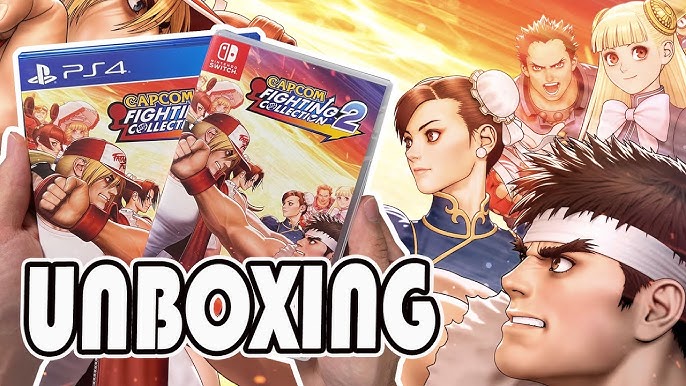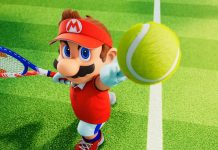In the absence of blockbuster launches, Japanese gamers are returning to nostalgic favorites, giving older titles a second wind on the sales charts. While the past few weeks have lacked major new releases, Capcom Fighting Collection 2 made its debut—securing the top spot in Japan’s weekly Famitsu chart from May 12 to 18, 2025. However, despite taking the crown, its actual sales performance was modest at best, raising questions about its long-term traction.

Capcom Fighting Collection 2 – A Modest Start at the Top
Sales Numbers Reflect Tepid Interest
Capcom’s latest effort to revive its classic fighting game IPs hit shelves with some fanfare, but the sales data tells a quieter story. According to Famitsu’s weekly rankings, Capcom Fighting Collection 2 sold:
-
7,801 copies on Nintendo Switch
-
An additional 4,182 copies on the same platform, possibly from a bundled SKU or late retail tracking
In total, under 12,000 physical copies were sold in its first week, a surprising figure for a title that landed in the No. 1 position.
Capcom’s Expectations vs. Reality
It’s likely Capcom expected stronger support for this nostalgic collection, which includes revived titles from iconic franchises like Darkstalkers, Street Fighter, and Cyberbots. The lukewarm reception could stem from a variety of factors:
-
Limited appeal beyond core fighting fans
-
Minimal marketing in Japan leading up to release
-
A lack of new features or incentives to attract casual or younger audiences unfamiliar with retro fighters
While topping the charts sounds impressive, context matters—the collection is currently leading in a very quiet market.
A Lull in New Game Releases Fuels Back-Catalog Resurgence
Gamers Revisit Trusted Favorites
Japan’s video game market appears to be in a seasonal slowdown, with no major AAA launches crowding the scene. As a result, players are diving back into their libraries or taking advantage of ongoing discounts and updates on beloved franchises.
This phenomenon explains the strong continued performance of games like:
-
Minecraft (5,869 copies) – The ever-popular sandbox game continues to be a top performer, especially among young audiences.
-
Animal Crossing: New Horizons (4,756 copies) – A pandemic-era hit that retains its loyal fanbase.
-
Mario Kart 8 Deluxe (4,275 copies) – Nintendo’s definitive racing game shows no signs of slowing down, even after 6+ years on the market.
Japan’s Top 10 Best-Selling Games (May 12–18, 2025)
Here’s the full Famitsu chart for the week, which paints a picture of market stability rather than growth:
| Rank | Platform | Title | Weekly Sales | Total Sales |
|---|---|---|---|---|
| 1 | NS | Capcom Fighting Collection 2 | 7,801 | – |
| 2 | NS | Super Mario Party Jamboree | 5,872 | 1,300,401 |
| 3 | NS | Minecraft | 5,869 | 3,889,763 |
| 4 | NS | Animal Crossing: New Horizons | 4,756 | 8,128,580 |
| 5 | NS | Mario Kart 8 Deluxe | 4,275 | 6,327,905 |
| 6 | NS | Capcom Fighting Collection 2 (2nd SKU) | 4,182 | – |
| 7 | NS | Tokimeki Memorial: Forever With You Emotional | 3,170 | 24,202 |
| 8 | NS | Nintendo Switch Sports | 2,714 | 1,585,602 |
| 9 | PS5 | Clair Obscur: Expedition 33 | 2,160 | 15,239 |
| 10 | NS | Pokémon Scarlet / Violet | 1,932 | 5,562,300 |
Legacy Games Dominate Sales Charts
What’s striking about the list is the continued dominance of Nintendo first-party titles, many of which are years old:
-
Animal Crossing, released in early 2020, has now sold over 8.1 million units in Japan alone.
-
Mario Kart 8 Deluxe continues its reign with over 6.3 million copies sold.
-
Even Pokémon Scarlet/Violet, which faced technical criticisms at launch, remains a fixture with 5.5 million units sold.
This pattern highlights how Nintendo’s strong IP ecosystem and long-term support keep their games relevant well beyond launch.
What’s Next for Capcom Fighting Collection 2?
Capcom now faces a critical decision. Will they:
-
Double down on post-launch support, possibly introducing online tournaments, additional modes, or new character content?
-
Or will the lukewarm debut lead to it quietly fading from the spotlight?
While the collection still has digital potential (Famitsu does not track digital sales), its physical performance suggests a limited mainstream audience—at least in Japan.
Final Thoughts – A Snapshot of a Slow Season
This week’s Famitsu sales chart is less about triumph and more about industry pacing. With no major new IPs, players are leaning into what’s familiar, and Capcom’s nostalgia play—while appreciated by genre enthusiasts—didn’t ignite the market.
It’s a reminder that timing, content depth, and market mood all play key roles in a title’s success—even one built on beloved franchises.




